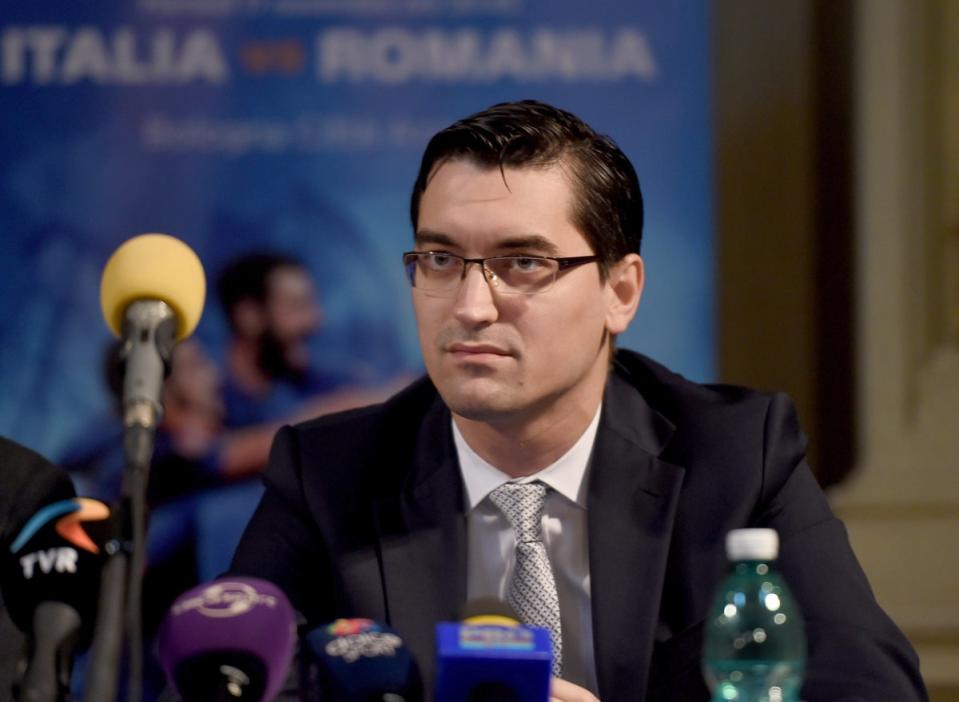Support emerges for new Uefa president as Aleksander Ceferin’s plan causes split

Romania's Razvan Burleanu is generating support as the potential next president of Uefa due to a split developing in the European confederation over plans for Aleksander Ceferin to stay in place until 2031.
Ceferin and his allies raised the plans at an Executive Committee meeting before last week's European Championship draw, which would seek to amend Uefa's statutes so the 56-year-old Slovenian could have more than a third term of office.
That would mean Ceferin staying in power for 15 years, having replaced the deposed Michel Platini following his four-year ban from football for an unofficial payment from former Fifa president Sepp Blatter.
The growing argument among federation heads is that such a move would represent an undemocratic return to those days, and not be in the best interests of football.
Reports in England on Monday said David Gill was driving the resistance and it is understood that many of those involved now see Burleanu as the best choice of challenger.
It was similarly reported by The Independent that the issue of Ceferin seeking to extend his presidency was becoming a growing issue in the build-up to that Euro 2024 draw in Hamburg, but developments in the German city brought it to a head. Gill is reported to have spoken out against the changes, which began to crystallise the opposition.
The situation illustrates how football governance is continuing to adapt after the fall-out from the Qatar 2022 bid in December 2010. It was the reports of corruption from that process which eventually caused regime change at both Uefa and Fifa, with Ceferin and his global counterpart Gianni Infantino coming in as presidents mid-term.
A quirk of Fifa's statutes means those intervening years when a previous candidate was replaced do not count towards a full term, and Ceferin is effectively seeking to make a similar argument here.
The hope is the proposals will be ratified at February's Uefa Congress in Paris, where a majority of 28 from 55 member countries will be required.

It was Ceferin himself who set a three-term limit for all executive appointments, as part of widespread governance reforms at his first Congress. A detail at the time was that the two-and-a-half years he inherited from Platini's time would count as a full term.
Although Ceferin earned popular support for his resistance to the European Super League, there has since been a feeling that more power has been ceded to the big clubs.
There has also been internal criticism for what has been perceived over a lack of overall vision, as well as a paucity of strategy or foresight on big issues like multi-club ownership and the effect of the Saudi Pro League.
One view commonly stated is that Ceferin is "falling into the same desire for staying in power" that many figures in such football positions do, which is precisely why term limits are so important.
It is within this context that Burleanu is generating support. The head of the Romanian federation since 2014, he is viewed as an excellent and responsible administrator, having grown up with a connection to the game as the son of former top-flight footballer Gheorghe Burleanu.
The 39-year-old himself was a youth player with a doctoral thesis on organisational management, who has worked in Romanian politics as well as on several Uefa task forces. Burleanu was elected as a Fifa Council member in April 2021.

 Yahoo Sport
Yahoo Sport 




































































